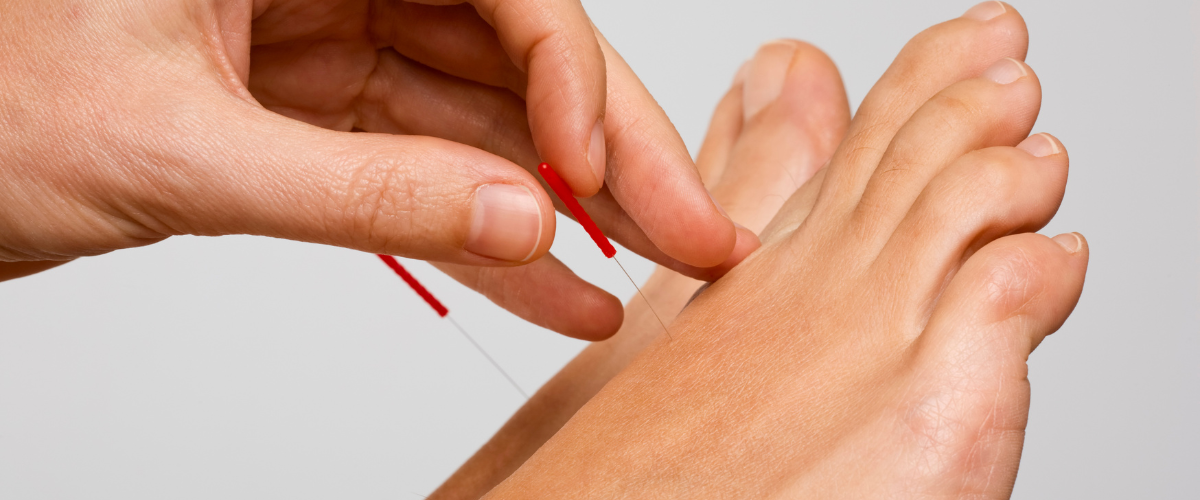Acupuncture is a traditional Chinese medicine technique that involves the insertion of thin needles into specific points on the body to promote healing and alleviate pain. While commonly used to treat various ailments, acupuncture has also shown promising results in helping with cervix dilation pain during childbirth. The process of cervix dilation can be extremely uncomfortable and painful for many women, but acupuncture offers a natural and drug-free alternative to manage this discomfort. By targeting specific points along the body’s energy channels, acupuncture can help reduce inflammation, relax muscles, and release endorphins, providing significant relief from cervix dilation pain.

What Causes Cervix Dilation Pain During Childbirth?
Cervix dilation pain during childbirth is primarily caused by the stretching and thinning of the cervix as it opens to allow the baby to pass through the birth canal. The strong contractions of the uterus, which are responsible for pushing the baby out, put pressure on the cervix, resulting in discomfort and pain. Additionally, the cervix contains nerve endings that can be stimulated during the dilation process, further contributing to the sensation of pain.

How intense is the pain during cervix dilation?
Cervix dilation is generally described as a highly intense and painful experience. The pain experienced during cervix dilation can vary from person to person, but it is often described as similar to severe menstrual cramps or intense pressure in the pelvic area. Additionally, the intensity of pain can increase as the cervix dilates further. However, medical interventions such as epidurals or pain medications can be used to manage and reduce the discomfort during this process.
Can the pain of cervix dilation be managed without medication?
The pain of cervix dilation during childbirth can be managed without medication through various natural techniques and interventions. These include relaxation techniques such as deep breathing, meditation, and visualization, as well as the use of hot or cold packs, massages, and changing positions frequently. Other non-medication options include water immersion and hydrotherapy, acupuncture, and the support and guidance from a doula or a midwife experienced in natural pain management methods. Additionally, having a supportive and encouraging environment, along with effective communication and education about the labor process, can also help women cope with the pain of cervix dilation without medication. However, it’s important to note that every woman’s pain tolerance and birth experience are different, and medication may still be necessary or desired for some individuals.
Are there any long-term effects of experiencing cervix dilation pain?
Experiencing cervix dilation pain during childbirth can have both short-term and long-term effects. In the short term, it is a normal part of the labor process and may cause temporary discomfort or intense pain depending on individual pain tolerance and the use of pain management techniques. However, in the long term, there are generally no lasting physical effects of cervix dilation pain itself. The body’s natural healing processes allow the cervix to recover and return to its normal state after childbirth. Nonetheless, it is important to note that every individual’s experience and recovery may vary, and there might be other factors associated with childbirth that could have lasting effects. It is advisable to consult a healthcare provider for personalized information and support.
Does the pain of cervix dilation vary based on individual factors?

Yes, the pain of cervix dilation can vary based on individual factors. Each person may have a different pain tolerance level, which can influence their perception of the pain experienced during cervix dilation. Other factors that may contribute to the variation in pain include the individual’s overall health, previous childbirth experiences, and any underlying medical conditions. Additionally, emotional and psychological factors such as anxiety and fear can also impact the perception of pain during cervix dilation.

How does cervix dilation pain compare to other types of labor pain?
Are there any natural remedies or techniques to alleviate cervix dilation pain?
Cervix dilation pain can be intense during childbirth, but there are several natural remedies and techniques that can help alleviate the discomfort. One common method is to use warm water or a warm compress on the lower abdomen to relax the muscles and provide relief. Breathing exercises, such as deep breathing or focused breathing, can help distract from the pain and promote relaxation. Some women find relief through massage or applying gentle pressure to the lower back. Additionally, certain positions, like kneeling or squatting, can help reduce the pain by allowing gravity to assist in the dilation process. It’s important to discuss these methods with a healthcare professional to ensure their safety and effectiveness in individual cases.

Is it possible for cervix dilation pain to be a sign of a medical complication?

Yes, cervix dilation pain can be a sign of a medical complication. While some degree of discomfort is expected during the dilation process, severe or abnormal pain could indicate complications such as cervical trauma, infection, or an underlying medical condition. It is important for individuals experiencing excessive or concerning pain during cervix dilation to seek medical attention to determine the cause and receive appropriate treatment if necessary.
The Intensity and Management of Cervix Dilation Pain: A Comprehensive Exploration
In conclusion, acupuncture has shown promising results in managing cervix dilation pain during childbirth. Research studies have consistently demonstrated its effectiveness in reducing pain intensity and duration, promoting relaxation, and potentially even aiding in the progress of labor. By stimulating specific acupoints, acupuncture can help regulate the body’s energy flow and release endorphins, which naturally alleviate pain. Although further research is still needed to establish the exact mechanisms and optimal treatment protocols, acupuncture undoubtedly offers a safe and non-invasive option for women seeking relief from cervix dilation pain. As more healthcare providers integrate acupuncture into their practice, it has the potential to become an important complementary therapy in childbirth, providing women with additional comfort and support during this physically demanding process.